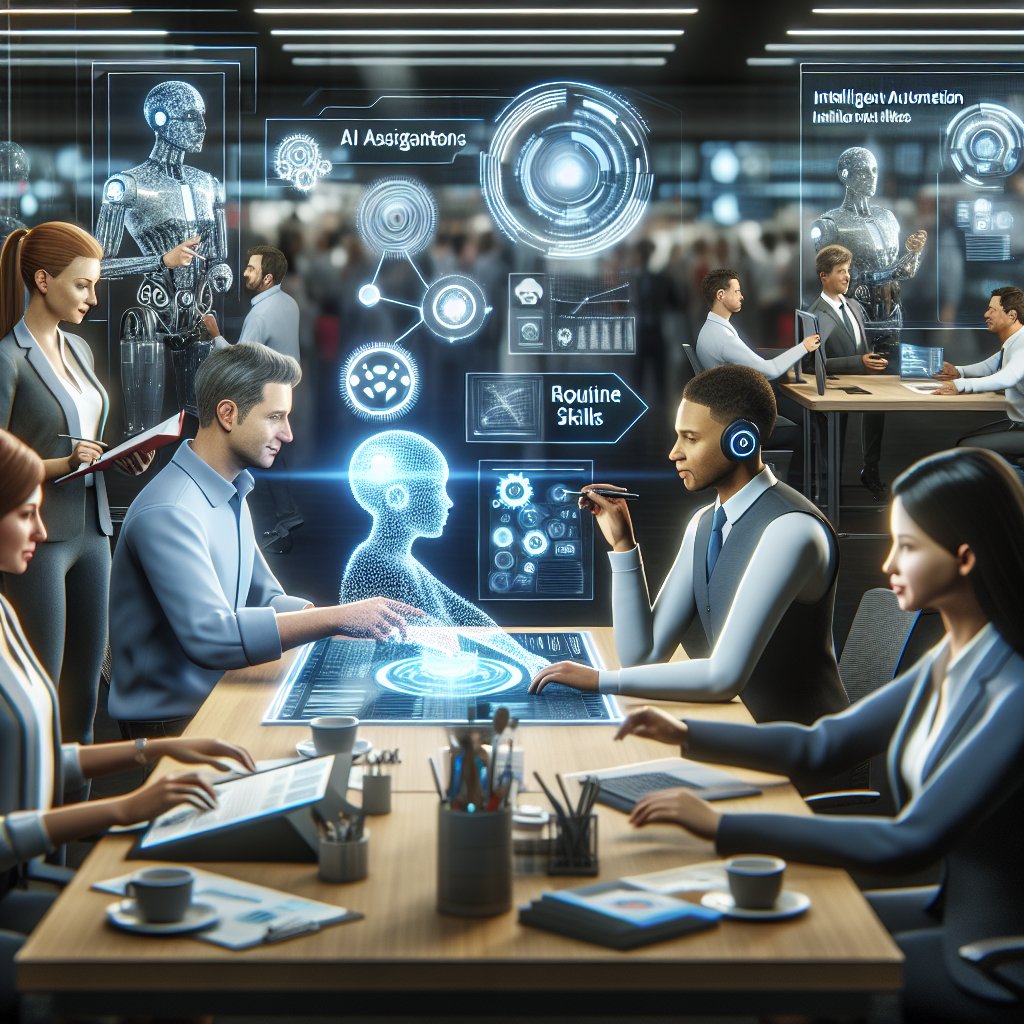How Generative AI Is Reshaping Jobs: The Surprising Skills That Matter More Than Ever
Introduction
Generative AI (GenAI) has exploded onto the scene, transforming how we work. Tools like ChatGPT, GitHub Copilot, and Google Gemini are becoming essential in many workplaces, reshaping industries and redefining job roles. But what skills matter most in this AI-driven world?
A recent study by researchers from INSEAD and London Business School sheds light on this very question. They analyzed job postings from 378 U.S. public companies that explicitly sought candidates with GenAI expertise between 2021 and 2023. Their findings reveal an eye-opening shift in the demand for skills, highlighting the rise of cognitive and social abilities while de-emphasizing others like self-management and customer service.
If you’re wondering how AI might impact your job—or what skills will give you an edge in the future—this research has valuable insights. Let’s break it down in a way that’s easy to digest.
How Generative AI is Changing Skill Demands
The impact of AI on jobs has traditionally been framed in three ways:
- Enhancement – AI makes workers more productive in certain areas.
- Displacement – AI replaces certain human tasks.
- Reinstatement – AI shifts the focus to higher-level work, creating new skill demands.
This study moves beyond these conventional views to focus on skills—the building blocks of job performance. Unlike tasks or roles, which can be automated or eliminated, skills evolve in response to technological advances.
Using a massive dataset of over 7 million job postings, the researchers uncovered surprising trends about what employers now value in AI-enabled workplaces.
The Rise of Cognitive and Social Skills
1. Cognitive Skills Are More Important than Ever
When companies advertise roles that require GenAI tools, they tend to seek professionals with strong cognitive skills—things like critical thinking, problem-solving, analytical reasoning, and research abilities.
The study shows that AI-relevant roles require 36.7% more cognitive skills than their non-AI counterparts. This makes sense: AI can assist with repetitive tasks, but humans to interpret and apply AI-generated outputs effectively.
Think of it this way—if AI is an advanced calculator, companies still need smart humans to decide what to calculate, analyze the results, and apply them strategically.
2. Social Skills Are Becoming Increasingly Crucial
A fascinating discovery: in the months after ChatGPT’s release, the demand for social skills in AI-related roles surged by 5.2%.
Why? As AI takes over some routine and technical work, human collaboration, communication, and teamwork become even more valuable. The ability to work well with others, persuade stakeholders, and convey complex ideas in simple terms is now a must-have skill in an AI-powered workplace.
Employers increasingly value professionals who can translate AI insights into meaningful business decisions—and this requires strong interpersonal abilities.
The Decline of Self-Management, Customer Service, and Financial Skills
1. Less Emphasis on Self-Management ("Character" Skills)
The study found that self-management skills—things like time management, organization, and multitasking—were in lower demand (-58.6%) in AI-enabled jobs.
Why? AI can now handle much of the scheduling, reminders, and workflow coordination that once required human effort. Tools like AI assistants and automated task managers help employees stay on track without needing as much self-discipline.
2. Customer Service and Financial Skills Are Less Critical
The demand for customer service (-53.0%) and financial (-49.2%) skills also dropped significantly in AI-related roles. This may reflect automation in customer support and financial analysis, where AI can now handle basic inquiries and number-crunching tasks.
Chatbots, for example, have taken over first-line customer support, and AI-powered financial tools can generate reports and analysis that once required specialized expertise.
What This Means for Workers and Employers
1. Workers Should Focus on High-Level Cognitive and Social Skills
- If you want to stay competitive in an AI-driven job market, hone your problem-solving, analytical thinking, and collaboration skills.
- Expect less emphasis on routine administrative skills—AI can handle much of this.
2. AI Won’t Replace Humans—But It Will Change the Type of Work We Do
- AI automates repetitive tasks, allowing people to focus on interpretation, strategy, and human interaction.
- Success in the future workplace will depend on leveraging AI rather than competing against it.
3. Employers Should Adapt Job Training and Hiring Strategies
- Companies should invest in upskilling workers in soft skills like communication and decision-making.
- AI training should go beyond technical proficiency—employees need to understand how to collaborate effectively with AI tools.
Key Takeaways
✅ Cognitive skills (problem-solving, analysis) are 36.7% more in demand in AI-related roles.
✅ Social skills (communication, teamwork) have increased in importance since the launch of ChatGPT.
✅ Self-management, customer service, and financial skills are now less emphasized in AI-integrated jobs.
✅ Workers should focus on developing higher-order skills that AI cannot easily replicate.
✅ AI won’t replace humans—it will shift the nature of work toward more strategic and collaborative tasks.
As GenAI continues reshaping industries, understanding these skill shifts can help workers future-proof their careers while helping businesses build effective AI-driven teams. The future of work isn’t AI vs. humans—it’s AI + humans working together in new and exciting ways.
🚀 Your Next Step: Want to stay ahead in an AI-powered workplace? Start developing your cognitive and social skills today!

